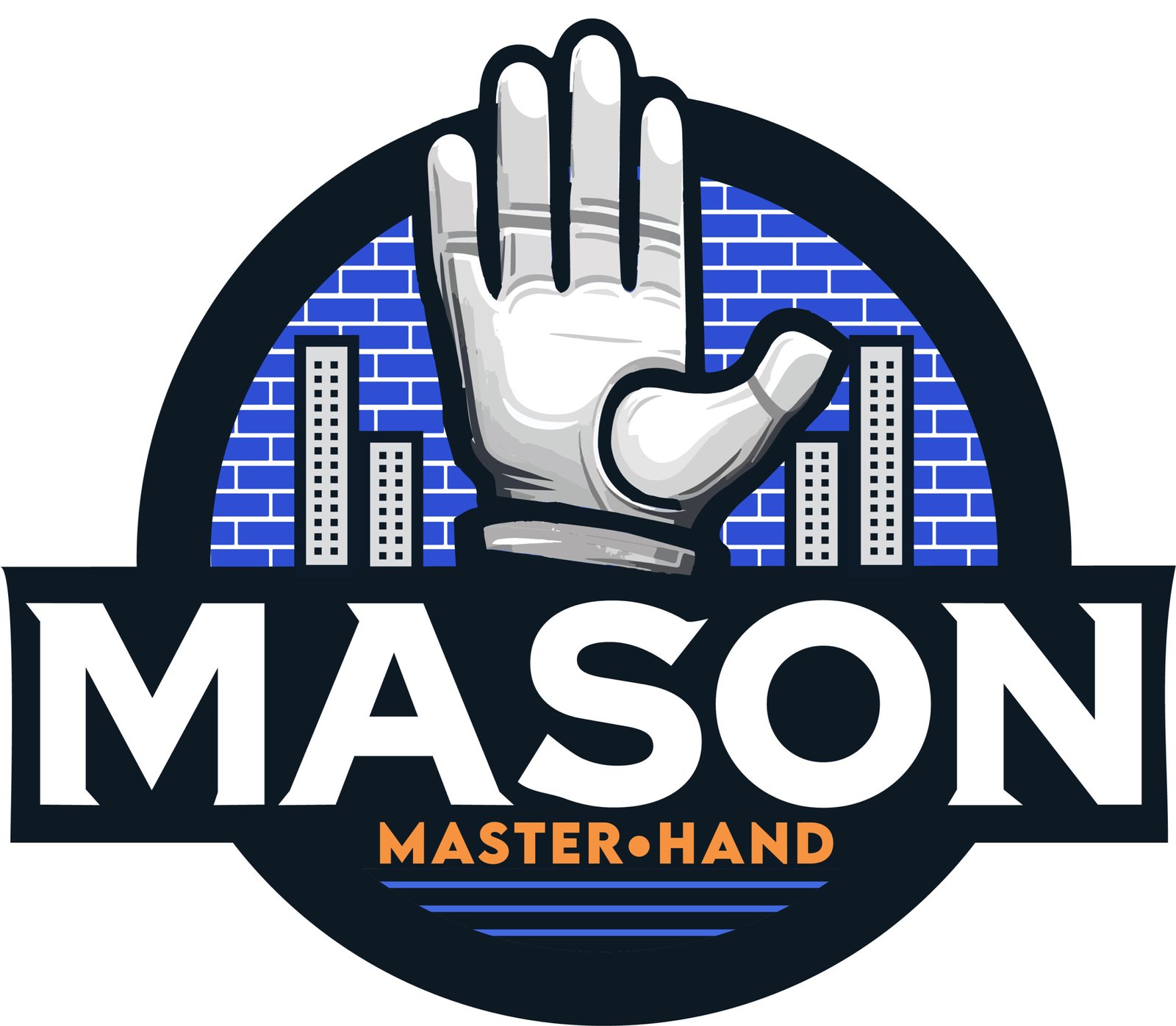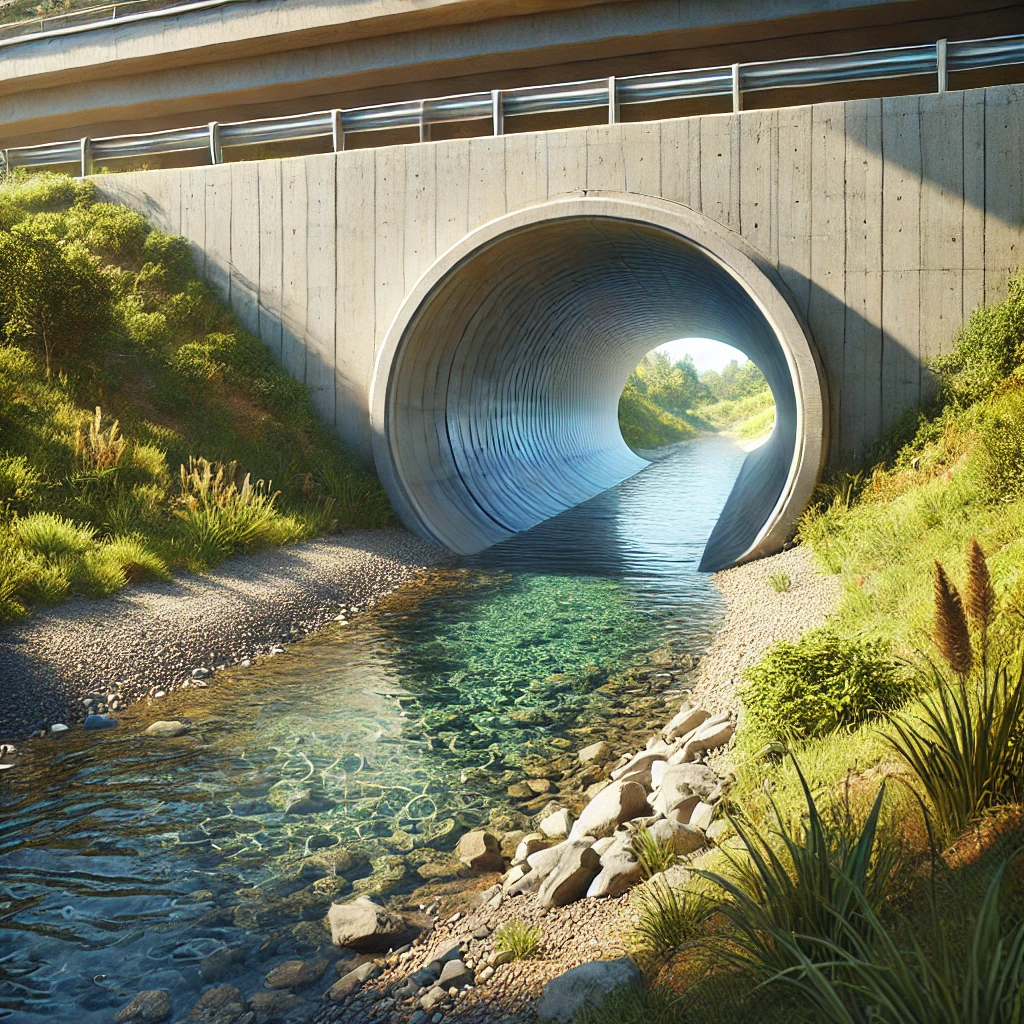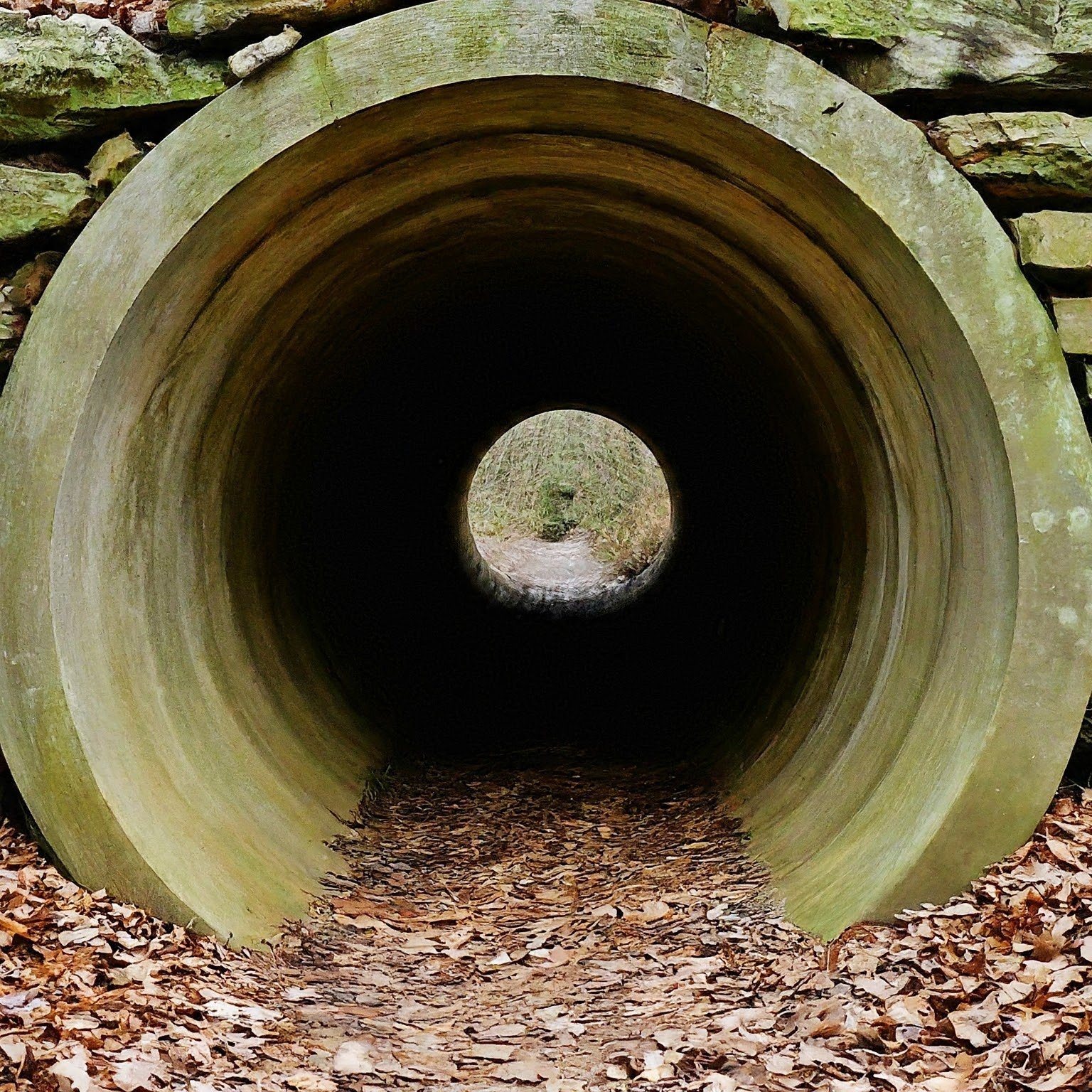- Home
- Culverts
Culverts
The Comprehensive Guide to Culverts in Michigan: Types, Purposes, and Expertise
Mason Master Hand - At Your Service!
Contact Us Today!
Culverts are crucial structures in civil engineering and infrastructure, serving vital functions in water management and road construction. In Michigan, where diverse weather patterns and varied topography present unique challenges, understanding the different types of culverts and their applications is essential. This comprehensive guide will explore the many types of culverts used in Michigan, their purposes, and the preferred styles among Michigan residents compared to other states. We’ll also highlight why Mason Master Hand is the team of experts to guide you in building a new culvert or repairing an existing one.
What is a Culvert?
Definition and Purpose
A culvert is a structure that allows water to flow under a road, railway, trail, or similar obstruction. They are typically embedded in the soil and can be made from various materials including concrete, metal, plastic, and more. The primary purpose of a culvert is to manage water flow, prevent flooding, and maintain the structural integrity of the infrastructure above it.
Key Purposes
- Water Management: Directs water flow away from roads and infrastructure to prevent flooding and erosion.
- Structural Support: Maintains the stability and integrity of roads and other infrastructure by allowing water to pass underneath.
- Wildlife Passage: Provides a safe passage for wildlife under roads and railways.
Types of Culverts
There are several types of culverts, each with unique characteristics and benefits. Here are the most common types:
Pipe Culverts
Pipe culverts are the most common type, typically made from concrete, steel, or plastic. They are circular, elliptical, or pipe-arch in shape.
| Feature | Description |
|---|---|
| Shape | Circular, elliptical, or pipe-arch. |
| Materials | Concrete, steel, plastic. |
| Installation | Easy to install, commonly used for small to medium water flow. |
| Advantages | Cost-effective, easy to install, and versatile. |
| Disadvantages | Limited capacity for large water flows. |
Box Culverts
Box culverts are rectangular or square structures typically made from reinforced concrete. They are used for larger water flows and are often pre-cast for easier installation.
| Feature | Description |
|---|---|
| Shape | Rectangular or square. |
| Materials | Reinforced concrete. |
| Installation | Pre-cast sections for easier installation. |
| Advantages | High capacity for large water flows, strong and durable. |
| Disadvantages | More expensive and complex to install. |
Arch Culverts
Arch culverts have a curved shape that mimics a natural stream bed, providing a more aesthetic and environmentally friendly option. They can be made from concrete or metal.
| Feature | Description |
|---|---|
| Shape | Arched. |
| Materials | Concrete, metal. |
| Installation | Can be pre-cast or constructed on-site. |
| Advantages | Aesthetic appeal, promotes natural water flow and wildlife passage. |
| Disadvantages | Higher cost and more complex installation. |
Slab Culverts
Slab culverts consist of a flat concrete slab supported by abutments or piers. They are typically used in areas with low water flow or where the ground conditions are stable.
| Feature | Description |
|---|---|
| Shape | Flat slab. |
| Materials | Concrete. |
| Installation | Requires precise construction and support. |
| Advantages | Simple design, cost-effective for low water flow areas. |
| Disadvantages | Limited to specific conditions, not suitable for high water flows. |
Bridge Culverts
Bridge culverts are hybrid structures that combine features of bridges and culverts. They are typically used for larger spans and heavier loads.
| Feature | Description |
|---|---|
| Shape | Varies, often includes a bridge deck. |
| Materials | Concrete, steel, composite materials. |
| Installation | More complex and costly, designed for specific needs. |
| Advantages | Suitable for large spans and heavy loads, can accommodate significant water flow. |
| Disadvantages | High cost and complex engineering required. |
Culverts in Michigan: Specific Considerations
Climate and Weather Patterns
Michigan’s diverse weather patterns, including heavy rainfall, snow, and freeze-thaw cycles, necessitate culverts that can handle significant water flow and temperature variations. Proper design and materials are crucial to ensure durability and functionality.
Soil Conditions
Michigan’s varied soil conditions, from sandy soils in coastal areas to heavy clay in inland regions, require careful assessment and appropriate foundation work to prevent settling and ensure stability.
Environmental Regulations
Building culverts in Michigan often involves complying with state and federal environmental regulations to protect water quality and wildlife habitats. This includes obtaining necessary permits and ensuring that the design minimizes ecological impact.
Preferred Culvert Styles in Michigan vs. Other States
Michigan Preferences
In Michigan, residents and engineers often prefer culverts that are robust and can handle the state’s challenging weather conditions. Box culverts and arch culverts are popular choices due to their capacity to manage large water flows and their durability.
Other States
In states with milder climates and less demanding water flow requirements, pipe culverts are often more common due to their cost-effectiveness and ease of installation. States with extensive agricultural lands may also favor simpler culvert designs for irrigation and drainage purposes.
International Use of Culverts
Culverts are used worldwide for similar purposes, but the materials and designs can vary based on local conditions and regulations. In countries with advanced infrastructure, concrete and metal culverts are prevalent, while in rural or developing regions, simpler materials like stone or timber may be used.
Seawalls vs. Retaining Walls
Definition and Purpose
While both seawalls and retaining walls serve to manage soil and water, they have distinct differences in their applications and construction.
| Feature | Retaining Walls | Seawalls |
|---|---|---|
| Purpose | Hold back soil, create level areas, prevent erosion | Protect coastlines from wave action and erosion |
| Location | Inland areas, sloped terrain | Coastal areas, along shorelines |
| Materials | Concrete, stone, timber | Concrete, steel, stone |
| Construction | Designed for soil retention, can include drainage systems | Designed to absorb and reflect wave energy, often curved |
| Challenges | Freeze-thaw cycles, soil stability | Constant water exposure, environmental regulations |
Building Seawalls in Michigan
Unique Considerations for Michigan
Michigan’s Great Lakes present specific challenges for seawall construction, including variable water levels and significant wave action. Seawalls must be designed to withstand these conditions and protect the shoreline effectively.
Environmental Regulations
Building seawalls in Michigan involves stringent environmental regulations to protect water quality and aquatic habitats. Obtaining permits and ensuring compliance with these regulations is crucial.
Why Choose Mason Master Hand for Your Culvert Projects?
At Mason Master Hand, we specialize in providing expert culvert services in Michigan. Our commitment to quality, durability, and customer satisfaction sets us apart. Here are some reasons why we are the best choice for your culvert needs:
Expertise and Knowledge
Our team of skilled professionals has extensive experience in designing and constructing culverts that meet Michigan’s unique requirements. We stay up-to-date with the latest techniques and materials to ensure the best possible results.
Reliability and Responsiveness
We understand the importance of timely and reliable service. We always answer our phones and prioritize our clients, ensuring they feel important and cared for. You can count on us to be there when you need us.
Customer Satisfaction
Customer satisfaction is our top priority. We work closely with our clients to understand their needs and preferences, ensuring that the final result exceeds their expectations.
Quality Materials
We use only the highest quality materials in our culvert projects. This ensures that your culverts are not only functional but also durable and long-lasting.
Conclusion
Culverts are essential for effective water management and infrastructure stability. In Michigan, the unique climate and soil conditions require specialized knowledge and materials to ensure the durability and functionality of these structures. Whether you need a new culvert built or an existing one repaired, Mason Master Hand is your go-to source for expert culvert services. Our commitment to quality, reliability, and customer satisfaction makes us the ideal choice for all your culvert needs in Michigan.
Contact Us
If you are interested in learning more about our culvert services or would like to schedule a consultation, please contact us:
- Phone: 844-896-2766
- Email: admin@masonmasterhand.com
- Website: www.masonmasterhand.com
Our team is ready to assist you with all your culvert needs in Michigan. Experience the Mason Master Hand difference and enjoy a durable, reliable culvert that will last for years to come.
Call Now!
If you’re looking for professional culvert services in Flint, Flushing, Saginaw, Bloomfield Hills, or other areas in Michigan, look no further than Mason Master Hand.
We specialize in culverts, concrete, stone walls, fireplaces and chimneys, patios, walkways, driveways, epoxy, retaining walls, and stone restoration.
Contact us today at (844) 896-2766 to schedule a consultation, and let us help you enhance the beauty and durability of your property with our expert stonemasonry services.



